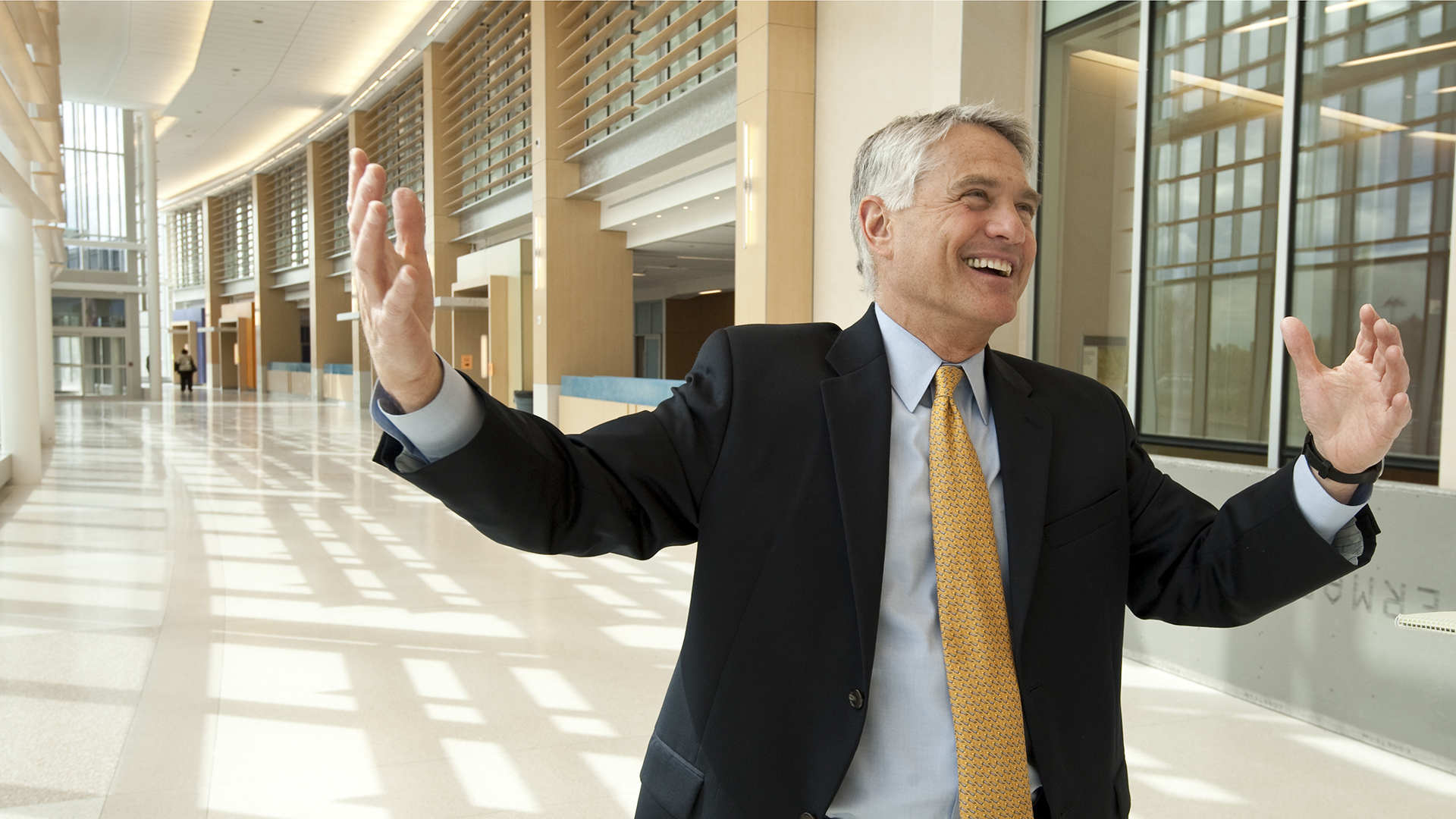Monday, May 15, 2017
by Robert Leitner ’17
This spring, the president and CEO of Princeton HealthCare System, Barry Rabner, taught a special topics course at Rider University designed to help health care management majors develop an in-depth understanding of the healthcare delivery system and to conceptualize the hospital of the future.
Because of the rapid pace of healthcare evolution, Rabner says by the time students enter the workforce, they will likely work in hospitals far different from those of today, with significantly different administrative responsibilities.
“The course was designed to help students identify and understand key drivers of change in healthcare delivery and how those drivers could impact the system, as well as to imagine what the resulting delivery system could look like in the year 2025,” Rabner says.
Under Rabner's leadership, Princeton HealthCare System operates with 2,997 employees, 1,080 physicians and 429 beds. He actively publishes and speaks on healthcare topics including planning, design, management and operations, and he has held multiple leadership positions in various healthcare delivery systems.
To develop a framework of the current healthcare delivery system, Rabner took an unconventional approach to his course. He exposed students to leaders in the healthcare administrative field and assigned readings from sources used by healthcare executives.
“This course deepens our students’ understanding of the health administration field and the jobs they are pursuing,” says Dr. Hope Corman, the director of the health administration program. “Rabner has accomplished this in a way that engages students with professionals and material that those professionals interact with every day.”
The healthcare industry is constantly growing and requiring new leaders to fill administrative positions. Rider’s health administration program prepares students for a variety of managerial positions. Rabner’s course offers a direct look into some of these healthcare positions and makes students think critically about how those positions may change over time.
Corrine Pine, a senior healthcare management major, acknowledged the evolving healthcare delivery system and valued Rabner’s approach to the class.
“Healthcare is a constantly changing field, so having a class based off of real-life examples through current events and guest speakers was extremely valuable for my education,” says Pine. “Since healthcare is rapidly changing it is important to know how new technology or regulations will be affecting us in our careers in the near future.”
The course utilized material from journals, newsletters, blogs and other popular sources amongst healthcare leaders, and it featured discussions led by professionals of Princeton HealthCare System who hold titles such as director of planning and business development, vice president of marketing and public affairs, and senior vice president of network development, among others.
The guest speakers gave students insight on the importance of detail for those in healthcare administration. For Pine, she found Director of Planning and Business Development Milind Khare’s discussion to be her favorite.
“It was extremely interesting to learn from his firsthand experience how impactful every little detail was when developing the hospital,” Pine says. “In general, it was extremely valuable learning from different guest speakers how they ended up in their current positions and understanding what they do on their typical day-to-day basis at work.”
Rabner even organized a trip touring the campus of a hospital. The trip included presentations from a patient, physician, nurse, housekeeper, and medical resident and payor, in regards to how the health care system affects them and their expectations of the organization.
“The tour of the hospital allowed us to see different departments like Labor and Delivery and the Emergency Room,” says Pine. “We were able to see what goes on behind the scenes from a staff member’s perspective and how important it is to have proper communication between different departments in order to run a successful hospital.”
Overall, Rabner’s approach to the course was well-received, and the time spent organizing the discussions led by the knowledgeable professionals and the tour was time well-spent. He is using the thoughtful and constructive feedback from students to further improve the course for semesters to come.
“Everyone who participated in developing and presenting the course enjoyed and learned from the experience,” says Rabner. “It would be great if the class could get together in eight years to see how well we did in predicting the future.”

